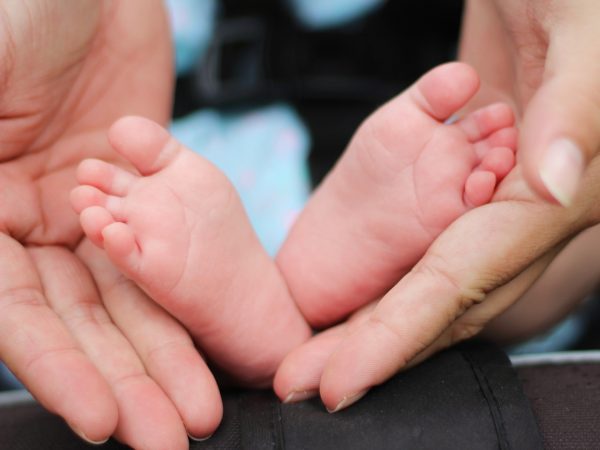Last week marked the anniversary of a monumental decision handed down by the Supreme Court on January 22, 1973, in a case known as Roe v. Wade.
It all began in 1969 in Texas when a 21-year-old high-school dropout who was divorced and homeless found herself pregnant for the third time. She had given up her first two babies for adoption. This time her adoption agency connected her with two lawyers looking for a plaintiff in a case they were hoping to file that would challenge Texas law that made abortion illegal. She fit the bill perfectly and to protect her identity she became known as “Jane Roe.”
She met with the two lawyers, signed an affidavit and by her own account, never saw them again, never appeared in court, and in fact, never aborted her child.
However, the case her two lawyers filed went to the highest court in the land, and in a landmark 7/2 decision, the Supreme Court ruled that “Jane Roe” and all women living in the United States had a constitutional right to end an unwanted pregnancy in the first trimester of pregnancy and, in some cases, even through the second trimester of the pregnancy.
In the years following that decision,
- 5 billion babies have been aborted worldwide.
- 60 million of those babies have been aborted in the USA.
These statistics are staggering! Which is why this past Sunday many evangelical churches called worshippers to reflect deeply, pray fervently and respond personally to what God has said regarding the sanctity of all human life, especially the life of those yet unborn residing in their mother’s womb.
Most Christians embrace the sanctity of human life when we are talking about the life of a person after birth. But it is not so uniformly recognized when it comes to the sanctity of the life of a person who has not yet been born.
Whose rights must be protected? The mother’s right to choose what to do about her pregnancy (pro-choice) or the right of the unborn person to have life (pro-life)?
Americans are divided. The Christian church is divided. Evangelical Christians are divided.
And perhaps there are some of us here who are divided on this question. You yourself are “pro-life,” but you do not believe that God demands a “pro-life” position as the biblically mandated position for all believers.
So how do we talk about this question? Where do we go for definitive answers? And are we personally willing to let those answers shape our thinking and govern our practice when it comes to the issue of aborting the life of an unborn infant?
There are many ways to frame a discussion on this topic. I want to approach this by thinking biblically about five basic questions that I believe demonstrate God’s will that all men recognize and protect the sanctity of all human life—especially the life of the unborn infant. I also want to frame these questions in such a way so that we examine this question on a personal and individual level.
With regard to my own life
Does God give me the ultimate right to choose what to do with my body?
In other words, who actually ultimately governs me and to what extent does this authority apply?
The Scriptures speak very clearly to this matter:
- We are not our own . . . we are bought with a price so we must use our bodies for His purposes and pleasure and not merely our own.
What? Know ye not that your body is the temple of the Holy Ghost which is in you, which ye have of God, and ye are not your own? For ye are bought with a price: therefore glorify God in your body, and in your spirit, which are God’s. — 1 Cor. 6:19-20
- We have been given freedoms and rights by God to use our bodies to pursue paths in life that fulfill us, for which God equipped and designed us, and that please and honor him.
. . . present your bodies a living sacrifice, holy, acceptable unto God, which is your reasonable service … that ye may prove what is that good, and acceptable, and perfect will of God. — Rom.12:1–2
- Because we were created in the image of God, our life is sacred to God and it must be held sacred by us.
- Created in His image as an image bearer (Gen. 1:27).
- Sacred to God above all other kinds of life (Gen. 9:5-6).
With regard to the life of another
Does God give me the individual right to intentionally harm the life or well-being of another person?
- Direct Command: Thou shalt not kill! (Ex. 20:13; Deut. 5:17; Matt. 19:18).
- Extreme Penalty: Capital Punishment (Gen. 9:6).
- New Testament Ethic: Paul told the Thessalonians to “always seek to do good to one another and to everyone” (1 Thess. 5:15, ESV).
So far, we have reached two important conclusions from the Scripture:
- I don’t have the ultimate right over my own body.
- I do not have the right to do harm to someone else’s body. This brings us to the next question:
With regard to the origin and beginning of life
When does a person become a person?
This is the key question because if what is growing in a woman’s womb is a person, then I must not do harm to that person. All of us would agree—abortion in any form is the intentional termination of a pregnancy. What we really need to know is whether or not we are terminating a person. And we ultimately need more than human opinion on this. We need to know whether God sees what is growing in a woman’s womb as an unborn person. So, let’s look at some key texts:
- Psalm 139:13–14a, “For you formed my inward parts; you knitted me together in my mother’s womb. I praise you, for I am fearfully and wonderfully made.” (ESV)
- Psalm 22:9–10, “Yet you are he who took me from the womb; you made me trust you at my mother’s breasts. On you was I cast from my birth, and from my mother’s womb you have been my God.” (ESV)
- Jeremiah 1:5, “Before I formed thee in the belly I knew thee; and before thou camest forth out of the womb I sanctified thee, and I ordained thee a prophet unto the nations.” (See also Isaiah 44:1–5.)
- Psalm 51:5, “Behold, I was brought forth in iniquity, and in sin did my mother conceive me.” (ESV) David recounts his personal moral history—a sinner from conception.
- Luke 1:41, “And when Elizabeth heard the greeting of Mary, the baby leaped in her womb.” (ESV) John the Baptist leaped in his mother’s womb for joy at the sound of Mary’s announcement that she was pregnant with Jesus. Elizabeth’s baby felt joy in the womb!
With regard to Government
What responsibility does a government have to protect the life and well-being of its citizens?
- Protect the lives of every person by demanding the life of those who wrongfully terminate the life of another (Gen. 9:6; Rom. 13:1–5).
- Protect the life of the innocent and the righteous (Ex. 23:7).
- Value and protect the life of the unborn (Ex. 21:22–25)—a person who caused a woman to miscarry resulting in the harm or death of the infant would pay in kind (life for life, eye for eye, tooth for tooth, etc.).
With regard to the Church and the Gospel
What does God want His people to do when the sanctity of human life has been violated by others?
Millions of unborn people have been and are being murdered in our land. This should disturb and trouble us.
- We should grieve over this profoundly.
- We should pray for this persistently.
- We should voice our objection to this boldly.
- We should do our part to stop this legally.
- We should guard against this personally.
What if I am such a person who has had an abortion?
- Run to Jesus as fast as you can—crawl if you have to!
- Hang on to Jesus with all the strength you can!
- Believe Jesus when He said, “I forgive you.”
- Rely on the grace of Jesus every day, hour, moment.
Remember Jane Roe? Her real name is Norma McCorvey, and here is the rest of her story.
She ended up not having the abortion, but for years she bore the weight of the law that bore her name. She volunteered at abortion clinics providing help and encouragement to those who were coming to get abortions. One day in 1995, she met a 7-year-old named Emily outside of an abortion clinic in Dallas, Texas where Emily’s parents were protesting. They were there because they had almost aborted Emily! Through this little girl, Norma found friendship, forgiveness and Christ. She became a Christian.
This post was adapted from a chapel message preached by Sam Horn on Jan. 24, 2017. Listen to the original chapel message below:
Join us for chapel via Livestream at 11 a.m. every Monday and Wednesday.








